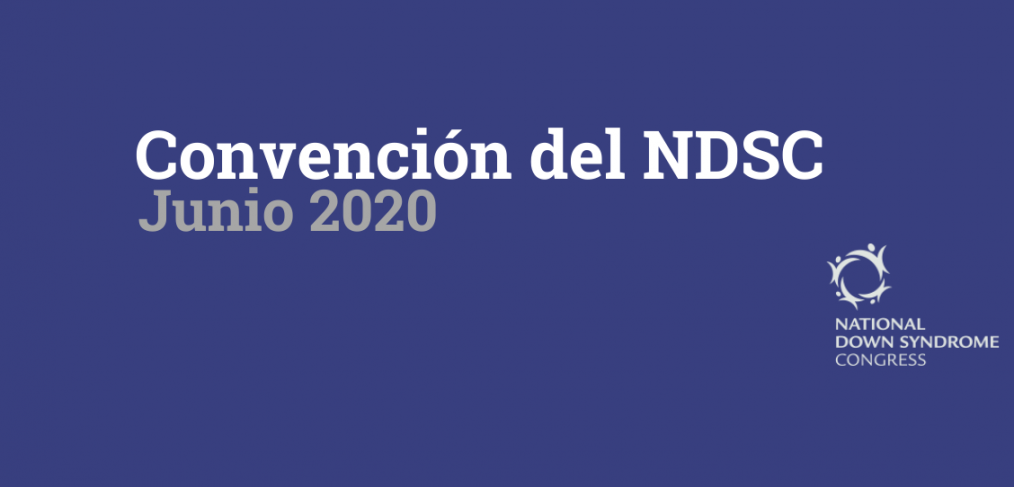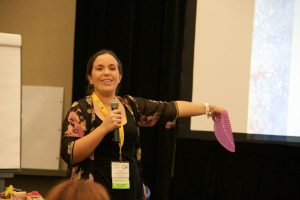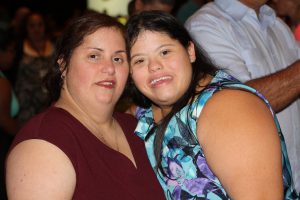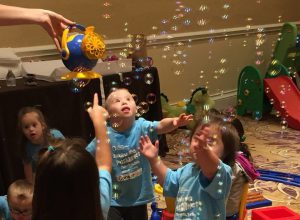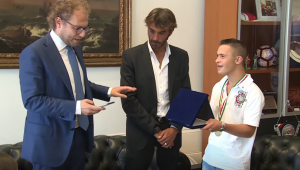ASK YOUR SENATORS TO FUND THE MONEY FOLLOWS THE PERSON PROGRAM BY PASSING THE EMPOWER CARE ACT!
On June 18, the House passed a bill that included 4.5 years of funding for the Money Follows the Person (MFP) program. This is great news, but it is time for the Senate to act! Please call your Senators and urge them to pass the EMPOWER Care Act (S. 548) to reauthorize MFP.
Background
The Money Follows the Person (MFP) program is a Medicaid program that has helped more than 75,000 people with disabilities and seniors move from nursing homes and other institutions into the community. First authorized in the Deficit Reduction Act of 2005 with strong bipartisan support, the MFP Demonstration program was designed to assist states with (1) supporting Medicaid enrollees who want to transition from institutional settings to community-based settings; and (2) developing infrastructure to promote and enhance access to Home and Community Based Services (HCBS). HCBS provides critical supports to people with disabilities to enhance their ability to be included and integrated into their communities instead of receiving care in restrictive, institutional settings. Each state can decide how to use the MFP funds, which they have used to expand or enhance HCBS programs, reduce waiting lists and fund housing supports.
The MFP program has been widely adopted – with 47 states participating since its inception – and has helped states to make significant progress on “balancing” their long-term services and supports systems to improve access for HCBS. The success of the MFP program has been widely recognized and documented, both in terms of effectively moving individuals from institutional to community-based care settings, reducing waiting lists for HCBS services, and savings states money (See Empower Care Act for more details).
Congress had passed stop gap funding for the MFP program in January 2019, but those funds will run out in September.
How to Help
You can help support the passage of the EMPOWER Care Act by calling the main Capitol line at: (202) 224-3121 (voice) or (202) 224-3091 (TTY) and click HERE to send an email to your Senators. They must hear that their constituents strongly support the Money Follows the Person Program and need them to vote YES on the EMPOWER Care Act to #FundMFP!
Thank you for your advocacy efforts!
The NDSC Policy & Advocacy Team
TALKING POINTS
• I am a resident of [Town, State] and your constituent. [I/my child/sibling/friend/co-worker, etc] is a person with a disability.
• I am calling to express my concern about the expiration of the Money Follows the Person (MFP) Medicaid program, and I am asking you to pass the EMPOWER Care Act and reauthorize Money Follows the Person through 2022
• MFP has enabled over 75,000 seniors and people with disabilities living in institutions to transition back to their communities.
• MFP is fiscally responsible – it has improved the quality of life for thousands of individuals while saving states money.
• The MFP program expired over a year ago, and states are running out of money for these services and already having to scale back. Congress had passed stop-gap funding in January 2019, but that funding will run out by September 2019. Without new funding, states will have to completely eliminate this program.
• Please help keep people with disabilities and the elderly in their homes and in their communities and reauthorize the Money Follows the Person program!
We encourage you to stay engaged in our advocacy efforts by:
(1) Registering for NDSC Action Alerts- click “Quick Sign Up”
(2) Subscribing to the NDSC Policy & Advocacy Newsline
(3) Joining our national grassroots advocacy program, the National Down Syndrome Advocacy Coalition
(4) “Liking” NDSC Policy & Advocacy on social media Facebook and Twitter



